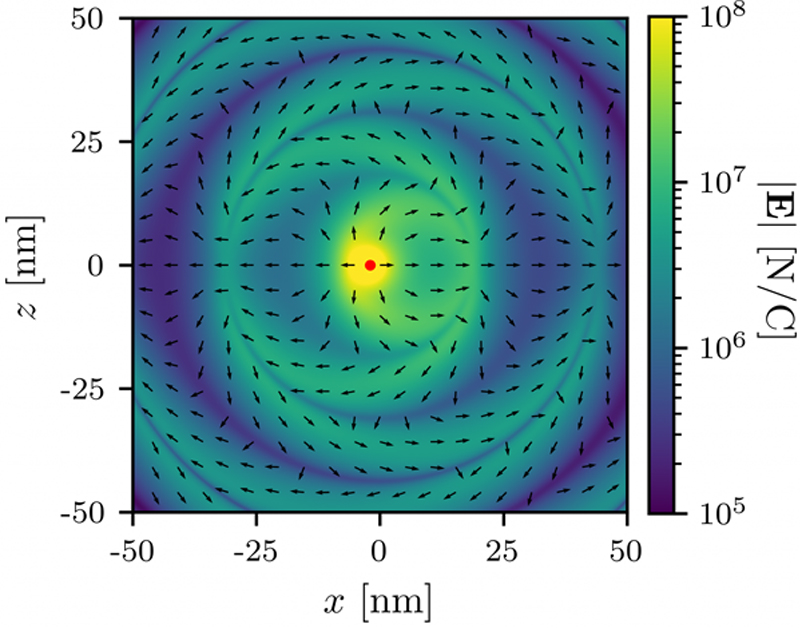Congratulations to Matthew Filipovich and Stephen Hughes for their latest paper that made the front cover of the May edition of American Journal of Physics. Their paper, entitled Space-time computation and visualization of the electromagnetic fields and potentials generated by moving point charges, presents an important step forward in computational electromagnetics. The work provides an intuitive understanding of the electromagnetic waves generated by moving point charges and can be used as a pedagogical tool for undergraduate and graduate-level electromagnetic theory courses. In addition, their computational approach enables the exploration of new research avenues related to moving point charges and oscillating dipoles in arbitrary motion.
A related proposal building from this exciting work was recently selected as one of the first joint Xanadu-Mitacs quantum computing projects: Stochastic Electrodynamics Simulations using the Xanadu Quantum Cloud. The Queen’s project aims to investigate new ways to understand random fluctuations and vacuum fluctuations from clouds of moving point charges, while possibly harnessing the exponential increase in efficiency offered by near-term quantum computers to simulate the movement of many particles and the subsequent emitted radiation at the nanometer scale. This proposal was one of five selected projects and is supported by a Mitacs Accelerate grant.
About the Funding Organizations
Mitacs is a national, not-for-profit organization that has designed and delivered research and training programs in Canada for 20 years. Working with 70 universities, 6,000 companies, and both federal and provincial governments, Mitacs builds partnerships that support industrial and social innovation in Canada.
Xanadu Quantum Technologies is a Canadian quantum computing hardware and software company headquartered in Toronto, Ontario. The company develops cloud accessible photonic quantum computers and develops open-source software for quantum machine learning and simulating quantum photonic devices.




